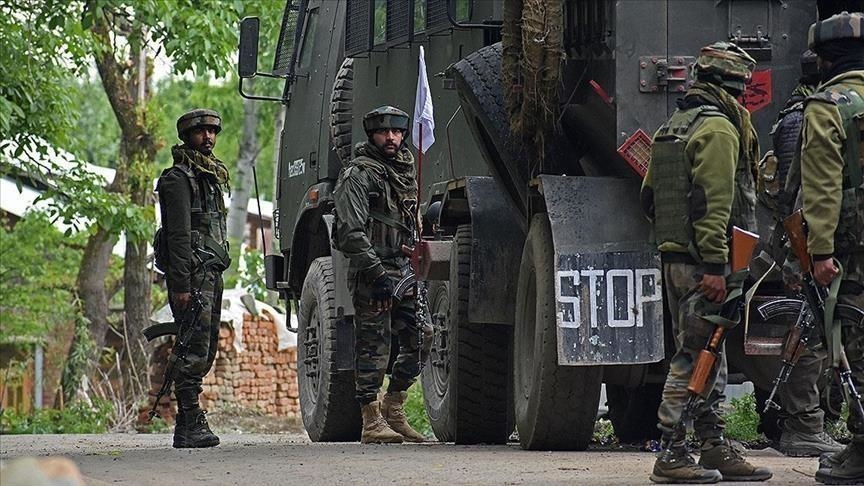UN experts say Indian counter-terrorism operations 'violating human rights' in Jammu and Kashmir
Experts cite arbitrary arrests, demolitions, communication blackouts and forced expulsions following Pahalgam attack in April

GENEVA
UN human rights experts on Tuesday expressed alarm about what they called "serious violations" committed by Indian authorities following the April 22 attack in Pahalgam, in Indian-administered Kashmir, which killed 26 people.
"We unequivocally condemn the brutal terrorist attack on a tourist area and extend our condolences to the victims, their families, and the Government of India. However, all governments must respect international human rights law while combating terrorism," the experts said in a statement.
After the attack, Indian authorities launched sweeping operations across Jammu and Kashmir, resulting in the arrest and detention of around 2,800 individuals, including journalists and human rights defenders, they noted.
Some were detained and charged under the Public Safety Act or the Unlawful Activities (Prevention) Act, which permits prolonged detention without charge or trial, according to the experts. Several detainees were allegedly tortured, held incommunicado, and denied access to lawyers and family members.
"We condemn reports of arbitrary arrests and detentions, suspicious deaths in custody, torture and other ill-treatment, lynchings, and discriminatory treatment of Kashmiri and Muslim communities," the experts said.
They highlighted reports of punitive house demolitions, forced evictions, and arbitrary displacement targeting families of individuals perceived as supporting militants, carried out without court orders or due process. The experts said: "Such actions constitute collective punishment and defy the 2024 ruling by India’s Supreme Court."
They also raised concern over communication blackouts, mobile internet suspensions, and the blocking of around 8,000 social media accounts, calling these "disproportionate restrictions on freedoms of expression, association, and peaceful assembly."
According to the experts, India's response also affected other regions, with Kashmiri students facing surveillance and harassment, rising hate speech against Muslims, widespread demolitions in Gujarat and Assam states, and the expulsion of nearly 1,900 Muslims and Rohingya refugees.
"Such expulsions violate the international obligation of non-refoulement, which prohibits returning individuals to countries where they risk persecution, arbitrary deprivation of life, torture, or other serious harm," they said.
The experts urged India to bring its counter-terrorism laws in line with international obligations, ensure accountability for violations, and "urge the immediate unconditional release of all individuals arbitrarily detained in Jammu and Kashmir."
They also called on India and Pakistan to peacefully resolve the long-running conflict over Jammu and Kashmir, "which has fueled human rights violations and the destructive cycle of cross-border violence."
While New Delhi was yet to react to the latest statement by UN experts, it has in the past denied such accusations.
Jammu and Kashmir, a Muslim-majority Himalayan region, is held by India and Pakistan in parts and claimed by both in full. A small sliver of Kashmir is also held by China.
Since they were partitioned in 1947, the two countries have fought three wars -- in 1948, 1965, and 1971 -- two of them over Kashmir.
Also, in the Siachen glacier in northern Kashmir, Indian and Pakistani troops have fought intermittently since 1984. A ceasefire came into effect in 2003.
The latest escalation between the nuclear-armed neighbors comes in the wake of the April 22 attack in Pahalgam, in which 26 people were killed.
India blamed Pakistan for the attack, claiming there were cross-border links. Pakistan has denied involvement and offered a neutral probe.
India then launched airstrikes on Pakistan, drawing a military response. After an exchange of attacks for four days, US President Donald Trump announced a ceasefire between the two nuclear rivals on May 10, which remains in effect.
*Contributions by Berk Kutay Gokmen in Istanbul
Anadolu Agency website contains only a portion of the news stories offered to subscribers in the AA News Broadcasting System (HAS), and in summarized form. Please contact us for subscription options.







